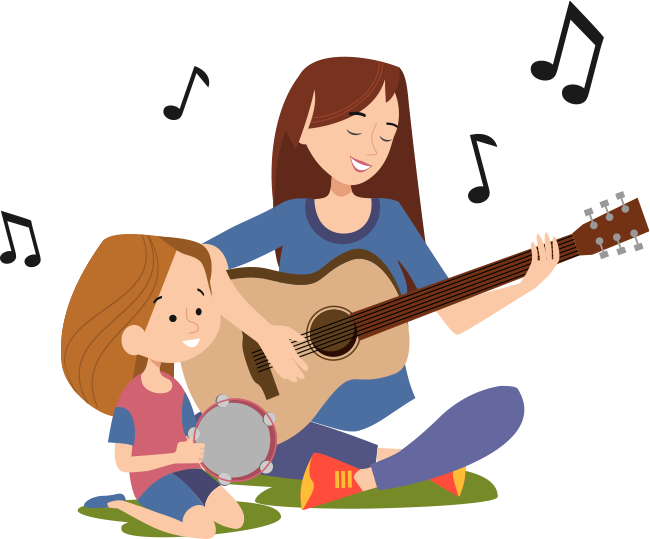Music Therapy (MT)
Overview
Music Therapy is an evidence-based treatment that uses music as a means to achieve non-musical goals such as physical, emotional, social and cognitive development. Olive Tree is the first established centre with Music Therapy in Singapore.
Assessment
Assessment will be implemented during the first few music therapy sessions. This is important to help the music therapist determine the nature and scope of the treatment. During the assessment period, the music therapist will gather information on the client’s history, present condition, strengths and limitations in different areas, as well as the client's interests, values, and attitudes. Information may be acquired by interviewing with the client’s family members and observation of the client in cognitive, social, physical, or other tasks during the music therapy sessions. Baseline data will also be collected during this period for further progress analysis.
Intervention
Right after assessment, the music therapist will discuss the findings and the potential goals with the client’s family members. The treatment plan will be established with goals and objectives for the client to work on.
The therapy techniques used in the centre include:
Music therapy can assist the clients in learning basic skills necessary for further learning such as attention span, following direction, and making eye contact using music therapy behavior modification and other techniques.
Neurologic Music Therapy is defined as the therapeutic application of music to cognitive, sensory, and motor function due to neurologic disease of the human nervous system. Neurologic Music Therapy is research-based. Its treatment techniques are based on the scientific knowledge in music perception and production and the effects thereof on non-musical brain and behavior functions. Populations served by Neurologic Music Therapists include, but are not limited to: stroke, traumatic brain injury, Parkinson’s and Huntington’s disease, cerebral palsy, Alzheimer’s disease, autism, and other neurological diseases affecting cognition, movement, and communication (e.g., MS, Muscular Dystrophy, etc)
Music therapy activities that involve movement, songs, and musical interactions provide an environment where social behaviors can be learned. Because music is enjoyable and a powerful reinforcement, it captures the client’s attention and so encourages cooperation.
Music is movable. It is a perfect stimulus to help coordinate movements because music has the quality to continue in a timely order. Rhythmic elements of music can help motivate and give structures to the movement. Music therapy for motor skill activities can range from simple tasks such as nodding head or tapping fingers to the beats to more complicated tasks such as playing musical instruments or dancing in steps.
Music therapy can assist the clients in learning basic skills necessary for further learning such as attention span, following direction, and making eye contact using music therapy behavior modification and other techniques.
Academic skills such as counting, object grouping, letter identification, and reading can be learned and encouraged through successful music making. Music elements such as melody and rhythm can help with memorization and make it enjoyable.
Music therapy can assist children in the autism spectrum to overcome their inability to relate emotionally and socially. Because of its structure and because it can be enjoyed at a concrete level, music therapy activities can engage children in meaningful interactions with others and provide an outlet for positive non-verbal self-expression.
Goals such as improving communication, socialization, attention to task, and academic skills for children and adults with intellectual disabilities can be addressed using music therapy interventions. Because previous music training is not required for an individual to benefit from music therapy, it is effective in treating people with a wide range of functioning. Music therapists use fun and engaging music therapy interventions such as singing, drum playing, and musical games to help the clients reach their therapy goals.
The use of music instruments contains therapeutic mechanisms including auditory feedback/purposeful movement, motivational arousal, and motor memory which can promote and encourage motor/physical responses. Playing music can help stimulate awareness of senses and increase attention span. Music with words can help patients learn/regain their language skills. Music therapy is useful to help patients for emotional adjustment. Music as a non-verbal form of communication could help the patients express themselves even when their language and communication skills are affected.



